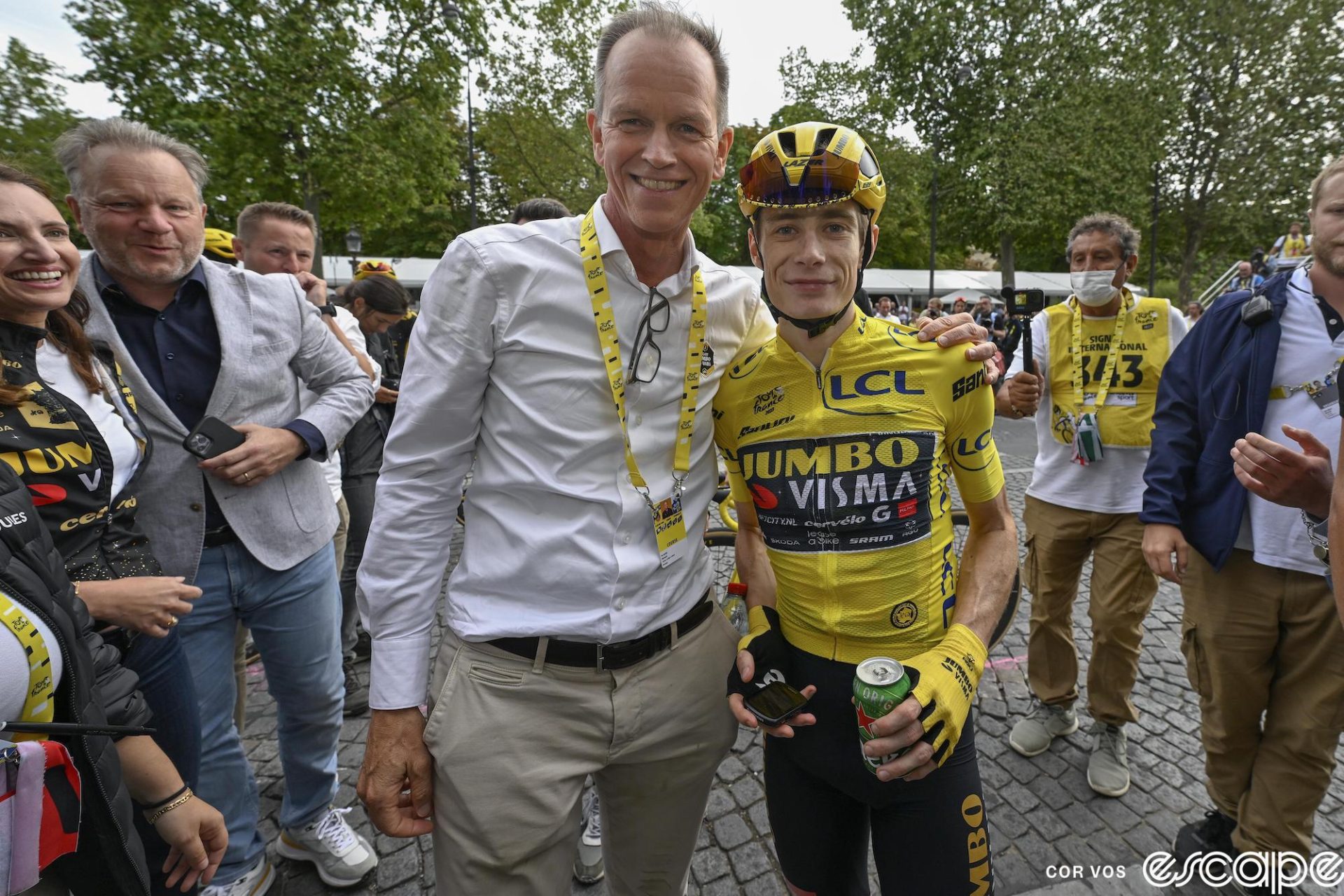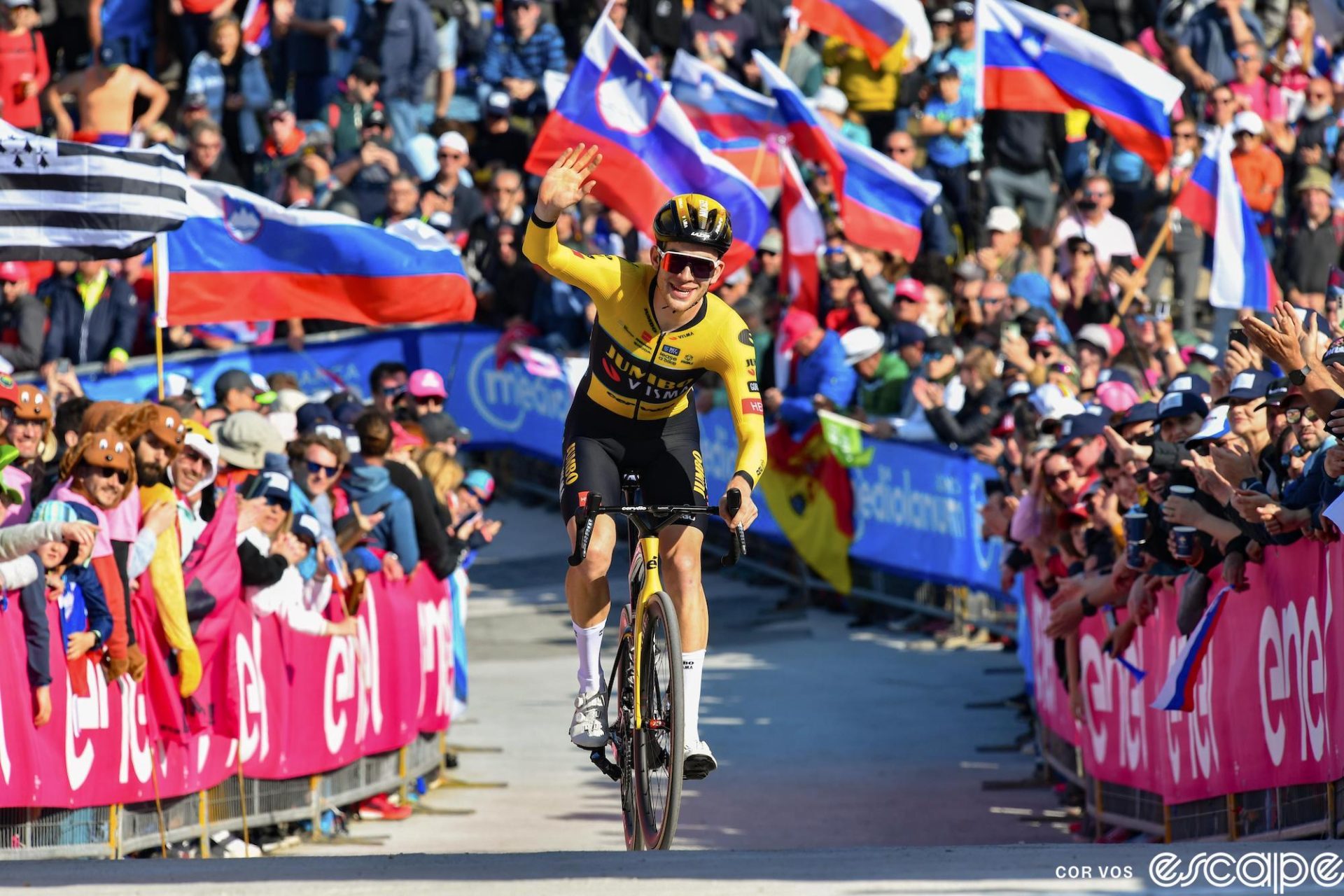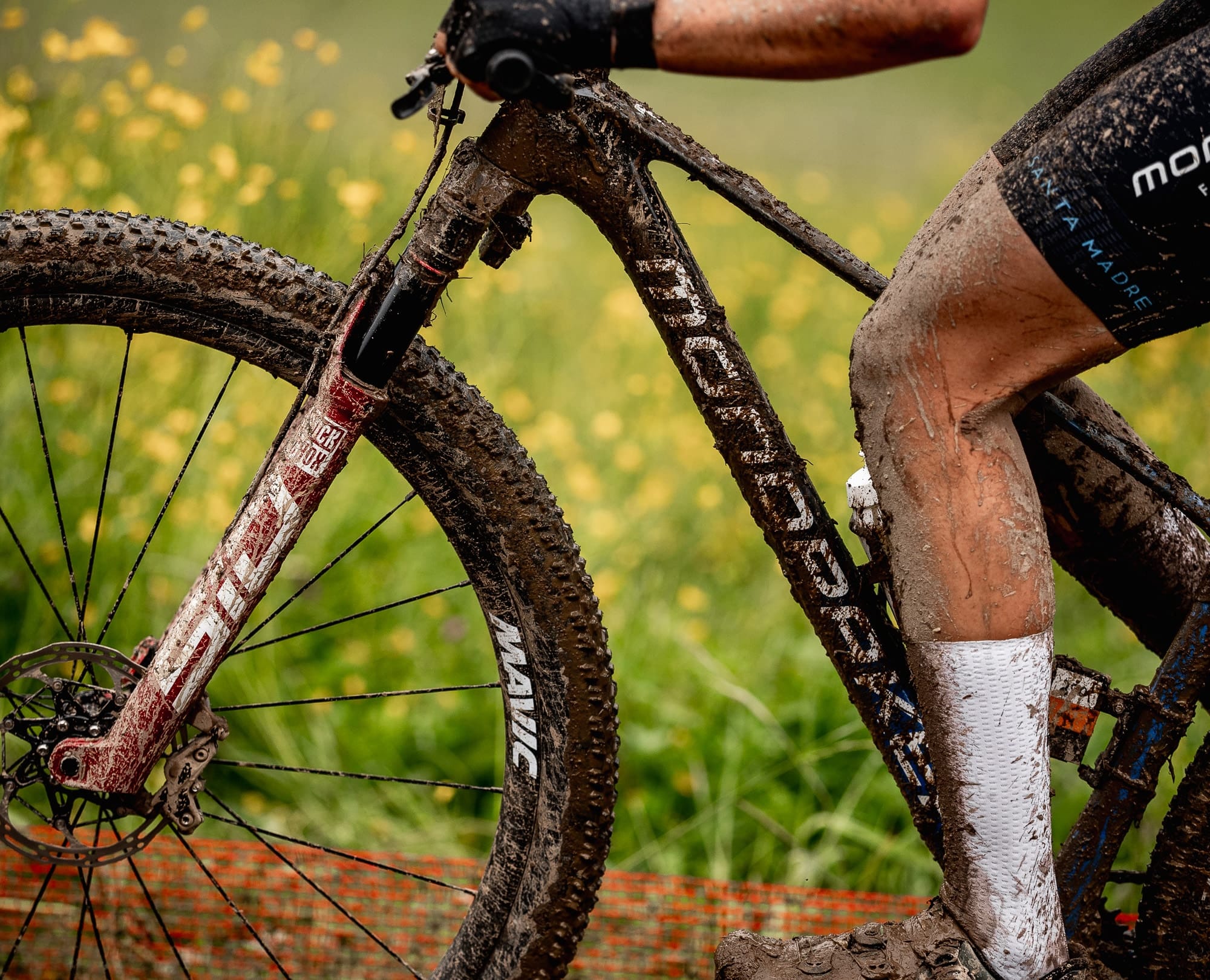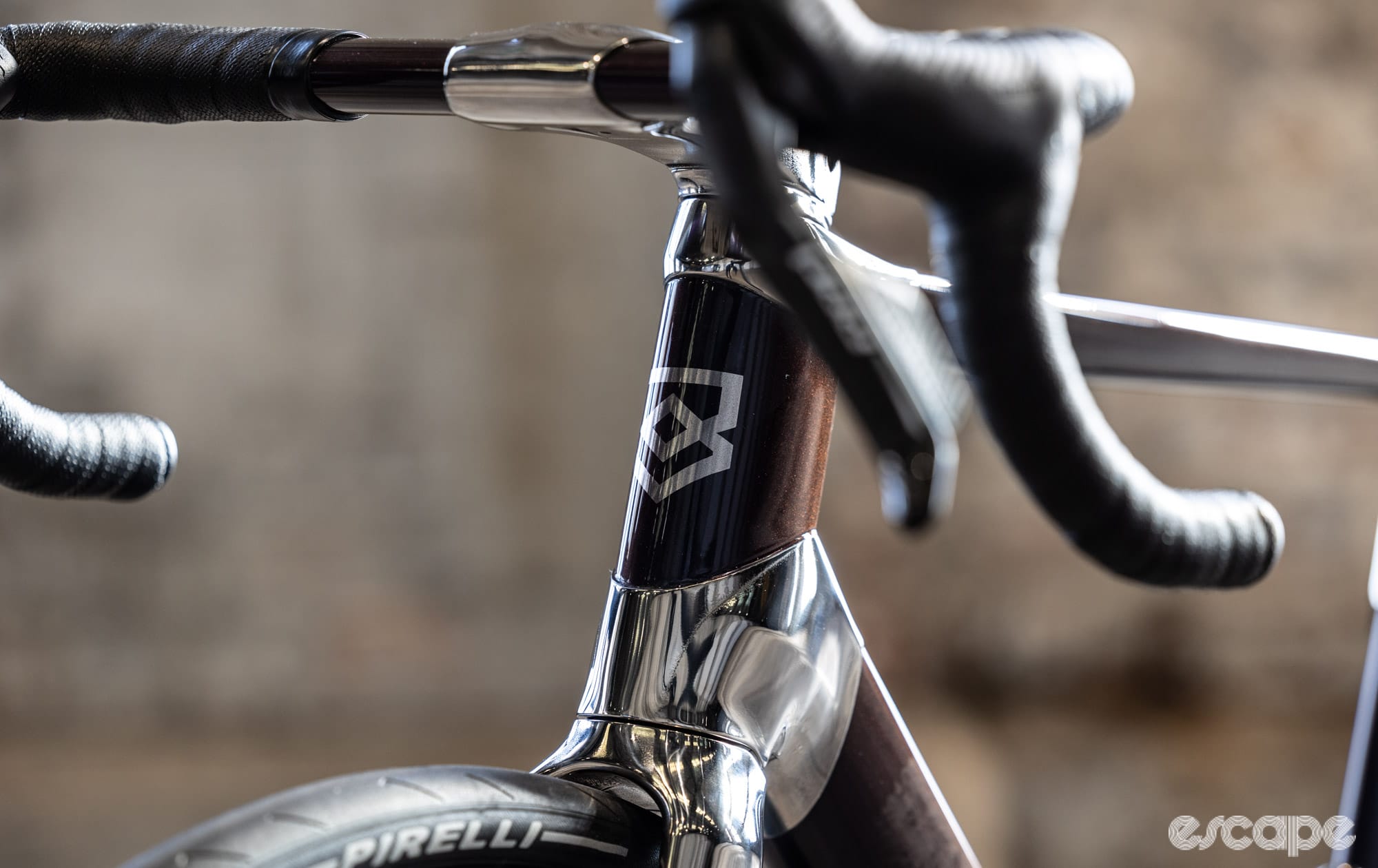The Jumbo-Visma WorldTour team announced on Twitter that it has suspended racer Michel Hessmann following what it called a positive anti-doping test. Hessmann was part of Jumbo's team for Primož Roglič's Giro d'Italia victory.
According to the team, Hessmann, from Germany, had an out-of-competition doping control on June 14, where a banned diuretic was detected. The team did not specify which substance, nor did it share details of whether Hessmann's B-sample has yet been tested.
The significance
Hessmann's positive test is troubling for two reasons past the obvious. First, diuretics are classed as banned substances under the World Anti-Doping Agency's Prohibited List not only because they're used for weight loss, but because they can be employed as masking agents for other banned drugs, which could suggest a more sophisticated use.
Hessmann tested positive in an out-of-competition test that came during a two-month period of rest and training where his only race was the German national championships. Long training blocks have historically been periods where riders who doped used drugs to help shed weight and sustain higher training loads than they otherwise could before returning to competition to reap the benefits.
The other troubling aspect is that Hessmann is a young rider who has come up in the Jumbo system. He is 22, a talented climber and stage racer who finished third overall in last year's Tour de l'Avenir and is in his second year on the WorldTour team. Hessmann also raced the 2020 and 2021 seasons with Jumbo's U23 development squad, meaning he's spent his entire elite career (post-juniors) with the team. The team can't claim that the positive occurred while he was part of a different system.

The background
The news marks the first time that a rider on Jumbo has fallen afoul of anti-doping rules since Rabobank prematurely ended its sponsorship after the 2012 season following revelations of systemic doping on the team for substantially all of its existence.
A number of top former Rabobank riders, including Michael Boogerd, Levi Leipheimer, and Rolf Sorensen admitted starting in 2012 to doping at various points throughout their careers, while manager Theo de Rooij admitted that the team knowingly tolerated doping. Geert Leinders, a one-time Rabobank team doctor who went on to work with Sky, was banned for life in 2015 for his role in doping on Rabobank.
Following Rabobank's abrupt departure, Richard Plugge stepped into the general manager role vacated by de Rooij and stabilized the team, which raced for a time as the sponsorless "Blanco" outfit before Belkin and then LottoNL and finally Jumbo stepped in as title sponsors. As with other WorldTour teams, Jumbo maintains a strict anti-doping policy, and has not had a single positive test until now under Plugge's leadership.
What now?
The timeline is unclear, as doping cases proceed based on their complexity and the rider's interest in contesting the findings. Diuretics are specified substances, which WADA defines as one that may enter an athlete's body inadvertently. WADA's Code has a doctrine of strict liability, meaning athletes are always responsible for what is found in their body no matter the circumstances, but if an athlete can convince a tribunal of contamination or inadvertent ingestion, a lighter sanction is possible.
Hessmann's most recent race was August 6 at the World Road Championships, which suggests he and the team were informed of the test results only recently. It's unknown whether Hessmann's B-sample has been tested yet (technically, an A-sample result is called an adverse analytical finding). Hessmann was slated to race the Bemer Cyclassics this weekend, but will be replaced in Jumbo's team there while his case proceeds. He faces up to a two-year ban if the result is upheld and would likely be fired from the team absent a convincing case of contamination.
Jumbo, which faced questions about its dominance at the Tour de France, will doubtless see that scrutiny heightened, right as the team readies to attempt a sweep of all three Grand Tours in the 2023 season with Giro winner Roglič and Tour de France winner Jonas Vingegaard both starting the Vuelta a España on August 26. The news also comes as the team is actively working to find a new title sponsor for Jumbo supermarkets, which announced in June after months of rumors that it would end its involvement with sports sponsorships after the 2024 season.
Did we do a good job with this story?




